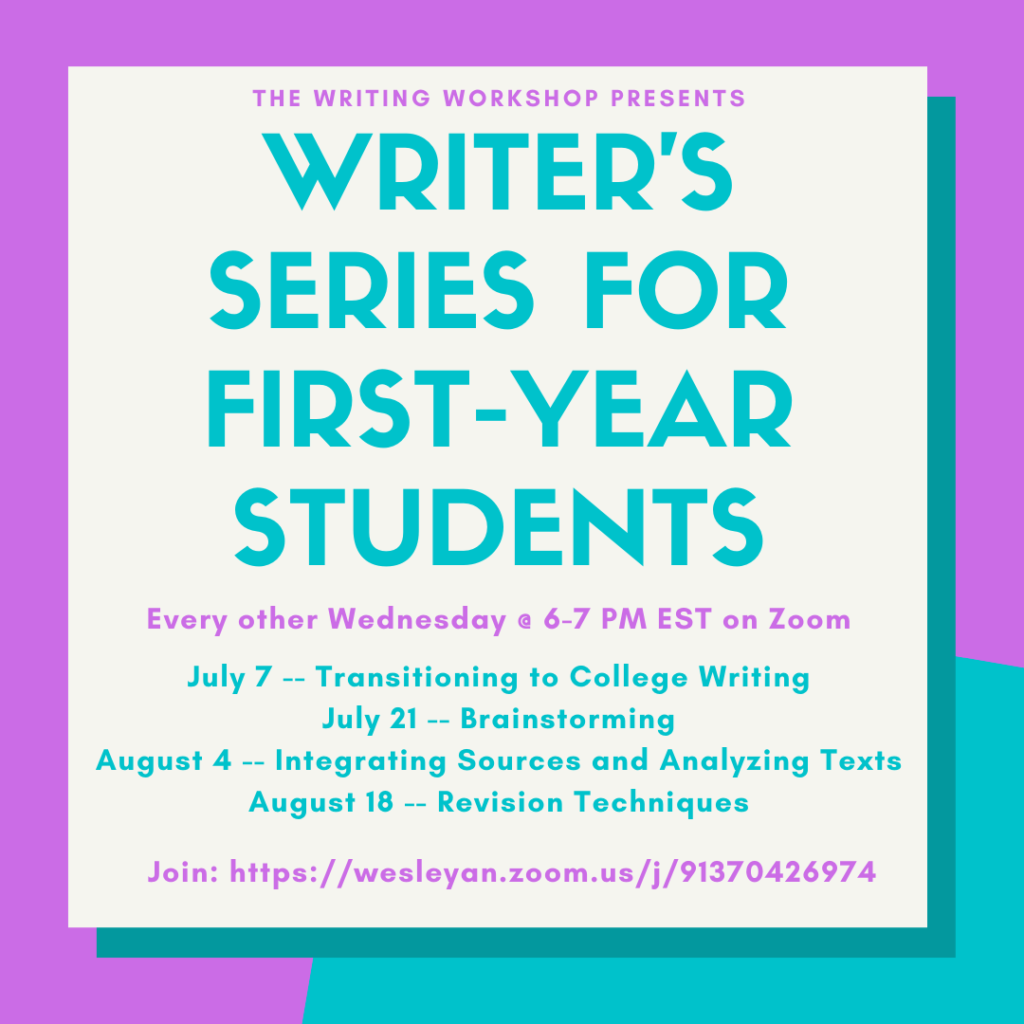With over 1000 courses in 45 majors, 14 minors, 12 certificates, and a unique open curriculum, choosing classes during pre-registration may seem like a stressful and daunting task. Many students come into Wesleyan without any idea of what they want to study – and that’s totally fine! For most students, major declaration does not happen until the second semester of sophomore year. However, Wesleyan has three majors that require declaration during the spring semester of freshman year. These programs are the College of Social Studies, the College of Letters, and the College of East Asian Studies. While we like to advise students to explore a wide range of classes in their first year of college and hone their interests, if you are thinking about one of these programs, it may affect the decisions that you make during pre-registration. This post will provide a description of each of these programs and some suggestions for those who are thinking about choosing one of these majors.
College of Social Studies. The College of Social Studies is a rigorous, multidisciplinary major focusing on History, Government, Political and Social Theory, and Economics. CSS is reading and writing intensive, encouraging intellectual independence with weekly essays, small group tutorials, and a vibrant intellectual environment.
College of Letters. The College of Letters is an interdisciplinary major for the study of European literature, history, and philosophy, from antiquity to the present. During these three years, students participate as a cohort in a series of colloquia in which they read and discuss works together (in English), learn to think critically about texts in relation to their contexts and influences—both European and non-European—and in relation to the disciplines that shape and are shaped by those texts. Majors also become proficient in a foreign language and study abroad in order to deepen their knowledge of another culture.
College of East Asian Studies. The College of East Asian Studies challenges students to understand China, Japan, and Korea through the rigors of language study and the analytical tools of various academic disciplines. This process demands both broad exposure to different subjects and a focused perspective on a particular feature of the East Asian landscape.
For those considering one of these three majors, here are some helpful tips as you select your classes and enter your first semester of college:
Deadlines. CSS, COL, and CEAS require major declaration in the spring of your freshman year. The deadline for CSS and COL is generally in March, and CEAS is in April. The application forms and the exact dates can be found on the department page of each major. If you are thinking about one of these majors, I would recommend talking to people who are in one of these majors or reaching out to any of the faculty members in the major as soon as possible.
Admission Requirements. All CSS majors must complete the economics prerequisite either by taking ECON101 and achieving a grade of CR or a letter grade of at least C- or by taking ECON110 and achieving a grade of CR or a letter grade of at least C-. Some students who have not completed the economics prerequisite are admitted each year on the condition that they must complete the prerequisite in the fall term of the sophomore year. Even if you are possibly thinking about majoring in CSS, I would consider enrolling in an economics course in the first or second semester of your freshman year.
Language Requirements. COL and CEAS both have language requirements. COL majors must become proficient in a foreign language and study abroad in a country where the selected foreign language is spoken. CEAS majors are expected to take at least four semesters of East Asian language courses and reach a minimum of advanced-level (third-year) competency in Chinese, Japanese, or Korean. Majors who are native speakers of Chinese, Japanese, or Korean are expected to study another East Asian language. Those who have already studied a foreign language relevant to one of these majors do not necessarily have to enroll in a foreign language in the first semester. However, for those who need to start at a beginning level, it is highly recommended that you enroll in a language course as early as possible.
General Education Expectations. Only CSS requires completion of Stage II general education requirements (three course credits in HA, SBS, and NSM, all from different departments or programs). However, CSS majors have until the end of junior year to complete Stage I general education requirements (two course credits in each area, all from different departments or programs). While COL and CEAS do not have general education requirements, it is highly recommended that ALL students complete Stage II general education requirements. A student who does not meet these expectations by the time of graduation will not be eligible for University honors, Phi Beta Kappa, honors in general scholarship, or for honors in certain departments and may not declare more than a combined total of two majors, certificates, and minors.
If you have any further questions about any of these three programs, we encourage you to reach out to a peer advisor or to a faculty member in the specific department.




